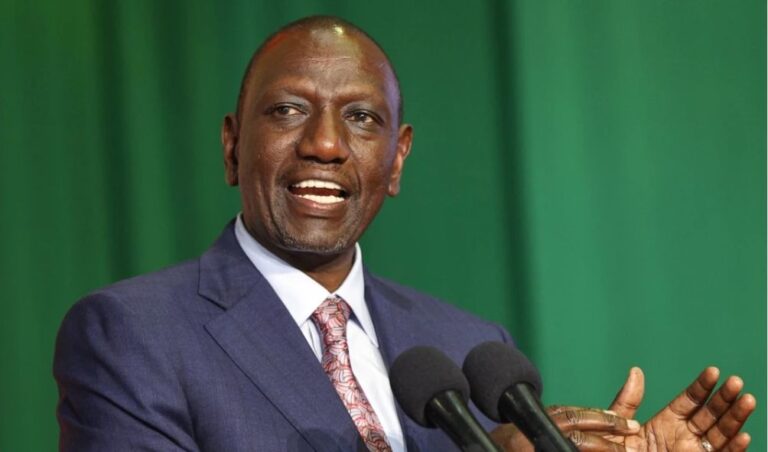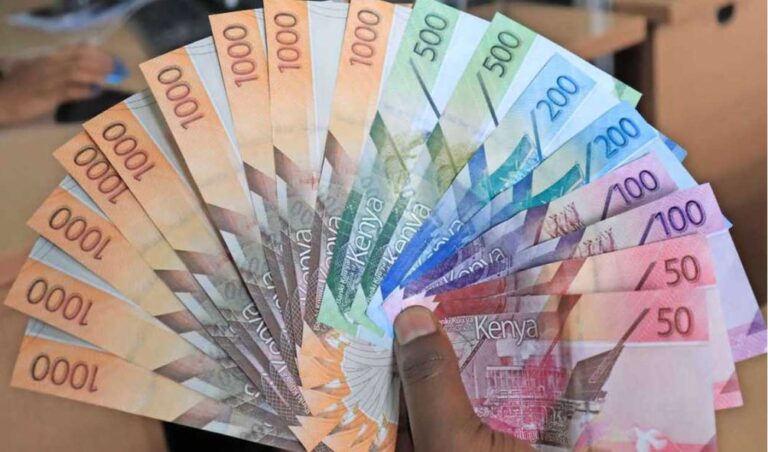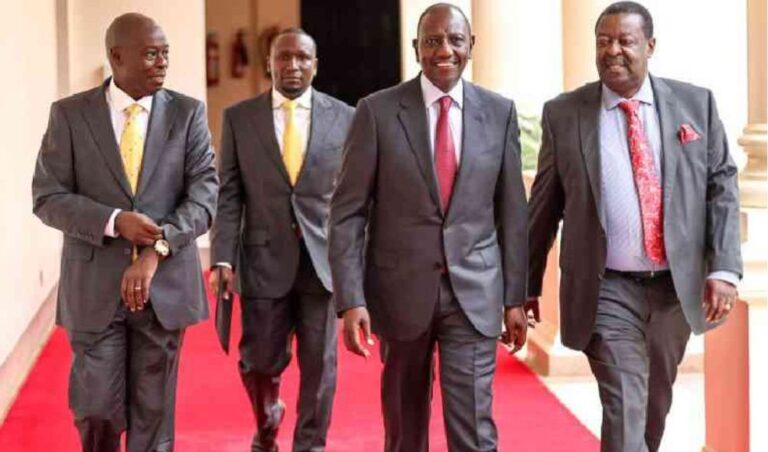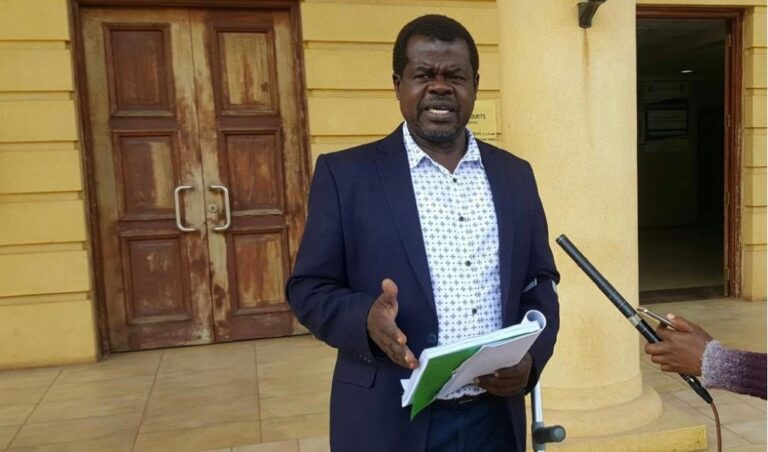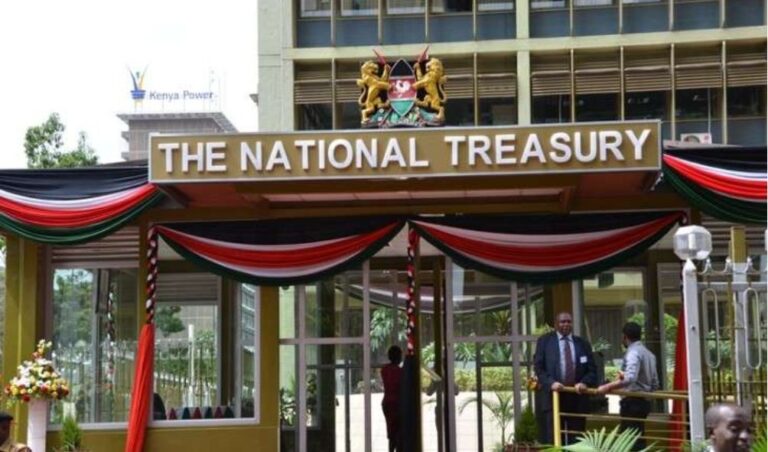EPRA fails to effect changes to two fuel levies (Import Declaration Fee (IDF) and Railway Development Levy (RDL)) that were...
BUSINESS
President Ruto accused of playing a 'political gimmick' after rejecting the implementation of a salary increase by the Salaries and...
UK delegation offers cattle to Maasai people as reparations for injustices meted on them during colonialism. Four Maasai families in...
Kenya breaches statutory debt ceiling of KSh10trillion even as parliament approves the conversion of debt to be anchored on percentage...
Kenyans will have to strict requirements before seeking treatment abroad in the NHIF (National Health Insurance Fund) reforms. Under President...
US philanthropist, Christopher Beth concerned over Ruto's government to impose tax on life-saving donations. The inspirational founder of a nonprofit organization...
Ruto defends his foreign travel amid an uproar from Kenyans over increased spending amid the high cost of living. President...
Kenya Kwanza Gov't officials in presence of Ruto launch an attack on Judiciary over the suspension of Finance Act 2023....
Okiya Omtatah warns EPRA of increasing fuel prices despite a court order suspending the implementation of the Finance Act 2023....
Parliament calls for probe over millions Kenya spends paying British pensioners who left the country six decades ago. The Auditor-General...


